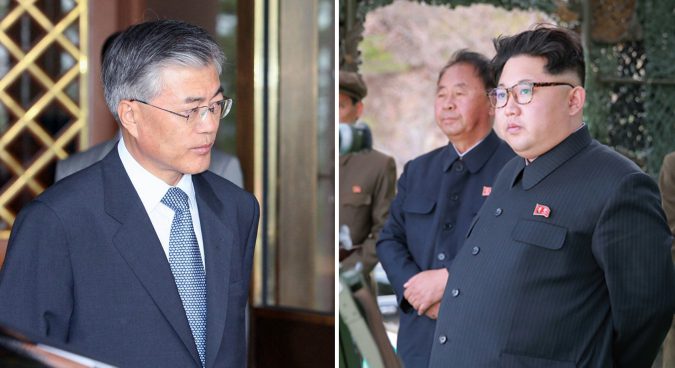SEOUL, June 29 (Xinhua) -- South Korean President Moon Jae-in vowed continued efforts at the Democratic People's Republic of Korea (DPRK)'s complete denuclearization for sustainable peace on the Korean Peninsula.
Moon's remarks were made in his congratulatory speech, read by his senior secretary for political affairs, to celebrate the third annual symposium on the Korean Peninsula reunification which was co-hosted by the unification ministry and Yonhap news agency on Thursday in Seoul.
The South Korean leader, who took office on May 10, was currently in Washington for his three-day stay to hold his first summit meeting with U.S. President Donald Trump.
The peaceful reunification with the DPRK, Moon said, was not a matter of choice but an uncompromisable principle to the two Koreas for the purpose of securing sustainable growth and the future generation's peace.
Under the principle of peaceful reunification, South Korea should take the lead in the Korean Peninsula issues, said Moon who stressed the need for a firm South Korea-U.S. alliance, a strong security and a thorough management of security crisis to prevent any DPRK military provocations.
Moon vowed his government's continued efforts to completely denuclearize the DPRK based on close cooperation with the international community and a strategic approach to the DPRK's nuclear issue.
The president said he will set foundations for complete and sustainable peace on the peninsula, adding that peace on the peninsula would open a new prospect for peace in Northeast Asia and prosperity in the world.
In his flight to Washington, Moon told the accompanying press corps of local media outlets that dialogue for the DPRK's dismantlement of its nuclear program can be launched when Pyongyang stops further nuclear and missile provocations and promises the freezing of its nuclear program.
Meanwhile, experts called for the Moon government to make efforts to encourage the DPRK to come back to the dialogue table.
The six-party talks aimed to dismantle the DPRK's nuclear program, which involves South Korea, the DPRK, China, the United States, Russia and Japan, has been suspended since late 2008.
At one of the sessions for the symposium, Choi Jong-kun, a professor at Yonsei University in Seoul and a campaign advisor to Moon on foreign policy, said it will be important to bring the DPRK to the dialogue table through South Korea's sufficient policies on Pyongyang.
Choi said the Moon government supported a balanced policy direction of engagement with and sanctions on the DPRK.
Kim Nam-joong, deputy minister for unification policy at South Korea's Unification Ministry, said in the symposium that the government will push to lead the DPRK to the dialogue table through pressure and negotiations in cooperation with relevant countries while firmly dealing with any DPRK provocation.
Kim noted that the Moon government will push for a new DPRK policy with the aim of "Peaceful Korean Peninsula" as tensions on the peninsula and strained inter-Korean relations were prolonged despite strong response to the DPRK's nuclear and missile provocations.


